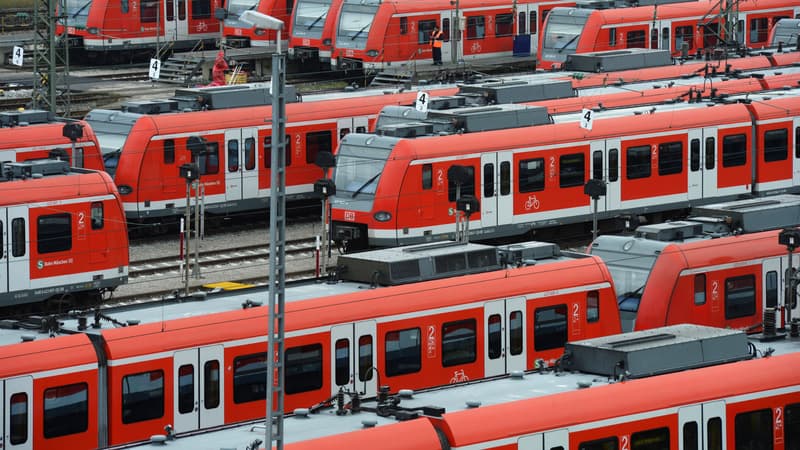The success is massive. Nearly 7 million people have subscribed to the ‘Deutschlandticket’, this package launched in Germany that allows unlimited travel on public transport and German regional trains except for high-speed lines for 49 euros per month.
Launched to counter the effects of inflation and promote modal shift, this card has convinced two million people who previously did not have a public transport subscription, greets the Association of German Transport Companies (VDV).
However, this enthusiasm has its downside. It weighs heavily on the German rail network which, like France, is aging. As a result, travelers are noticing a drop in the quality of service, particularly in terms of respecting timetables on regional trains that are often already full.
In addition, it is losing market share in long-distance coach connections, particularly one of its leaders, FlixBus, which offers many regional journeys covered by Deutschlandticket.
deleted rows
In an interview with the German newspaper Wirtschafts WocheAndré Schwämmlein, general director of the German company present in more and more countries (see our box) acknowledges that this package questions his model a bit.
“Ticket sales for Germany are currently below expectations,” he acknowledges. For this reason, “for the summer we will check which lines are the least used by our customers, such as Stuttgart-Munich, Hamburg-Baltic Sea, where today you can travel practically free with a 49-euro ticket. trips during the day could be cancelled”, advances the leader.
At the same time, André Schwämmlein strives to put this threat into perspective: “We can get away with the 49-euro note. Germany is important, but it is by no means our biggest market, it is the United States, Turkey or South America.” . “he underlines.
Remember that this Deutschlandticket is the continuation of the popular monthly subscription at 9 euros in German public transport, experienced from June to September 2022 that sold 52 million copies.
Its use for three months saved 1.8 million tons of CO2 emissions according to official data. 10% of users said they had given up at least one trip a week that was usually done by car, according to the association.
FlixBus attacks India
The company has announced its intention to tackle the colossal Indian market in 2024. “India, where the bus is one of the preferred modes of transportation, represents a sizeable market. Superior to the European, American and Turkish markets combined”, indicates the company.
“Our mission is to provide affordable and sustainable travel solutions for all, and we have seen strong demand for such services in India. We believe that our unique business model of working with local small and medium-sized businesses, as well as our planning, booking and pricing technology, will be a winning recipe, even in India,” continues André Schwämmlein.
Source: BFM TV


